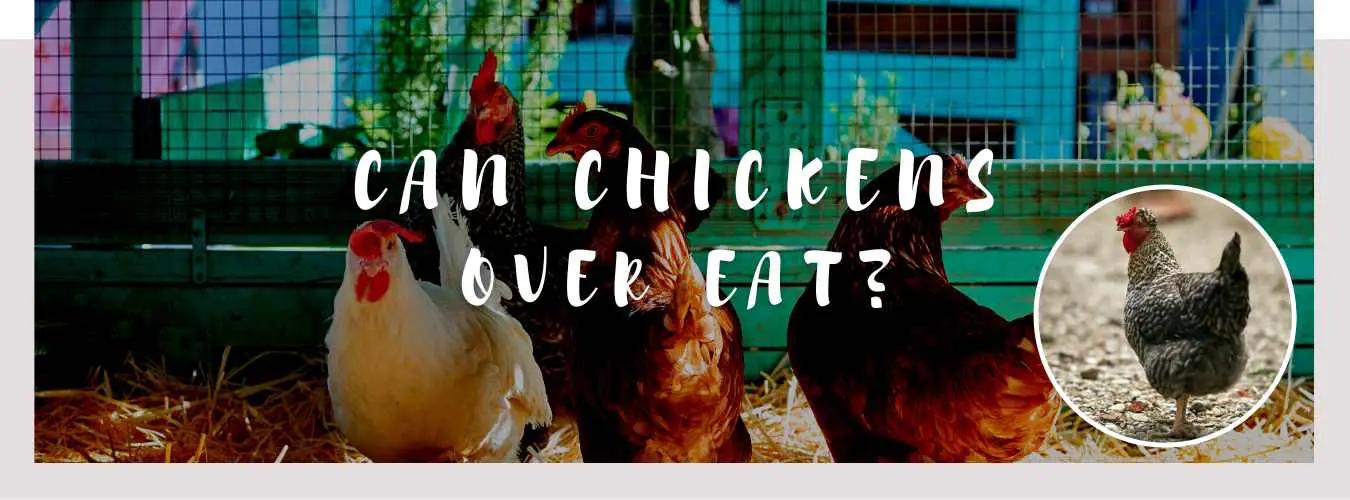
Chickens, known for their pecking and foraging habits, are often seen as creatures that will eat just about anything. But the question arises, can chickens overeat? Understanding the eating habits and dietary needs of chickens is crucial for those raising them, whether for eggs, meat, or as pets. This article explores the concept of overeating in chickens, its implications, and how to manage their diet effectively.
Recognizing Overeating in Chickens
Overeating in chickens can lead to various health issues, including obesity, decreased egg production, and even heart problems. Signs that a chicken might be overeating include noticeable weight gain, lethargy, and a decrease in normal activities like foraging or dust bathing. It’s important to monitor their diet and behavior to ensure they maintain a healthy weight.
Nutritional Needs of Chickens
Chickens require a balanced diet consisting of proteins, carbohydrates, fats, vitamins, and minerals. Commercial feeds are formulated to provide these nutrients in the right proportions. However, when chickens have access to excessive amounts of food, especially treats or kitchen scraps, they can consume more than their bodies need, leading to overeating.
The Dangers of Overeating
Overeating can have serious consequences for chickens. Obesity in chickens can lead to fatty liver disease, which is often fatal. Additionally, overweight chickens may suffer from joint issues and are more susceptible to heat stress. Ensuring that chickens have a balanced diet and are not overfed is crucial for their overall health.
To prevent overeating, it’s important to control the amount of feed and treats chickens receive. Limiting treats to 10% of their diet and providing a balanced commercial feed as the main food source is recommended. Also, encouraging natural behaviors like foraging can help regulate their food intake.
You might also like: What Can Chickens Eat?

Practical Feeding Recommendations
Feeding chickens at regular times and in controlled portions can help prevent overeating. Providing a consistent amount of feed, based on the number and size of the chickens, ensures they get the necessary nutrients without excess. It’s also beneficial to provide greens and allow them to forage, as this encourages natural eating patterns and exercise.
Understanding Chicken Feeding Behavior
Chickens are naturally inclined to eat small amounts frequently throughout the day. This behavior is rooted in their instinct to forage for food, which involves pecking at the ground to find seeds, insects, and other edible items. In a controlled environment, like a coop or domestic setting, their natural feeding rhythm can be disrupted if they are provided with unlimited access to food. It’s important for chicken owners to mimic natural feeding patterns as closely as possible to prevent overeating.
The Role of Treats and Scraps in a Chicken’s Diet
While treats and kitchen scraps can be a good source of variety and enrichment in a chicken’s diet, they should be given in moderation. Foods like fruits, vegetables, grains, and even mealworms are enjoyed by chickens but can contribute to overeating if not properly regulated. Treats should be viewed as supplements to their main diet, not replacements. It’s also crucial to avoid giving chickens foods that are harmful to them, such as chocolate, avocado, and anything moldy or spoiled.
Monitoring Chicken Health and Weight
Regularly monitoring the weight and health of chickens is a key aspect of preventing overeating. This can be done through visual inspections, noting changes in size, feather quality, and activity levels. Chickens that are overweight may have difficulty moving around, show signs of breathlessness, or have a decreased laying rate. Keeping a close eye on these indicators can help in adjusting their diet and preventing health issues related to overeating.
You might also like: Can Chickens Eat Cooked Vegetables?
Environmental Enrichment to Prevent Overeating

Creating an environment that encourages natural chicken behaviors can help prevent overeating. This includes providing space for foraging, dust bathing, and roosting. When chickens are engaged in these activities, they are less likely to overeat out of boredom or lack of stimulation. Additionally, environmental enrichment can improve their overall well-being and reduce stress, which can sometimes contribute to overeating.
The dynamics within a chicken flock can also influence eating habits. In a group, there may be competition for food, leading some chickens to eat quickly or consume more to ensure they get enough. Observing the flock’s behavior during feeding times can help identify if any chickens are being bullied or if there’s a competition for food. Adjusting the feeding strategy, such as providing multiple feeding stations, can ensure all chickens have equal access to food and reduce the risk of overeating.
Seasonal Considerations in Feeding
Chickens’ dietary needs can change with the seasons. During colder months, they may require more calories to maintain body heat, while in the warmer months, their appetite might decrease. Adjusting their diet according to the season is important to prevent overeating and ensure they are getting the right amount of nutrients year-round.
Final Thoughts
Preventing overeating in chickens requires a multifaceted approach that includes understanding their natural feeding behavior, providing a balanced diet with controlled treats, monitoring their health, creating a stimulating environment, considering flock dynamics, and adjusting feeding according to seasonal changes. By paying attention to these aspects, chicken owners can ensure their flock maintains a healthy weight and avoids the complications associated with overeating.










